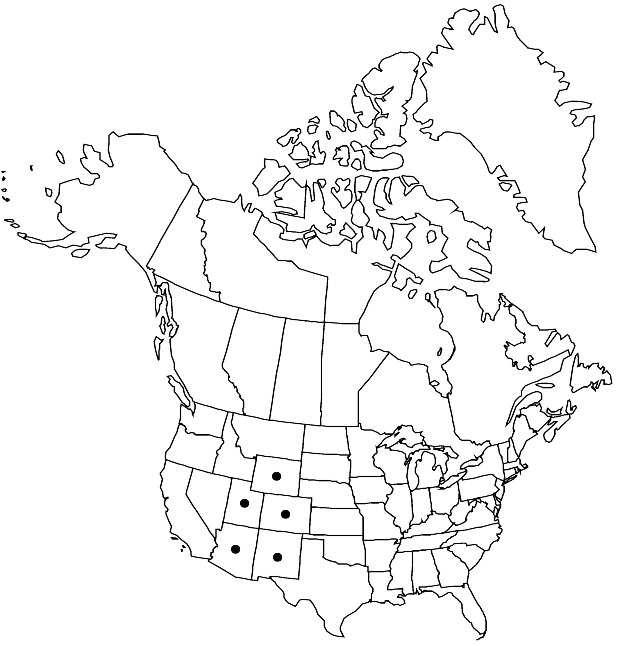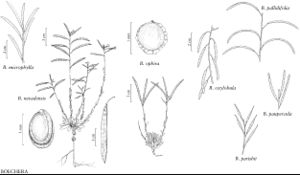Difference between revisions of "Boechera pallidifolia"
Phytologia 79: 65. 1996.
FNA>Volume Importer |
imported>Volume Importer |
||
| Line 60: | Line 60: | ||
|publication year=1996 | |publication year=1996 | ||
|special status= | |special status= | ||
| − | |source xml=https:// | + | |source xml=https://bibilujan@bitbucket.org/aafc-mbb/fna-data-curation.git/src/bb6b7e3a7de7d3b7888a1ad48c7fd8f5c722d8d6/coarse_grained_fna_xml/V7/V7_559.xml |
|tribe=Brassicaceae tribe Boechereae | |tribe=Brassicaceae tribe Boechereae | ||
|genus=Boechera | |genus=Boechera | ||
Revision as of 23:58, 27 May 2020
Perennials; short-lived; sexual; caudex usually not woody. Stems usually 2–5 per caudex branch, arising from margin of rosette near ground surface, or arising laterally proximal to sterile shoots, (0.5–)1.5–4 dm, densely pubescent proximally, trichomes short-stalked, 2–6-rayed, 0.1–0.3 mm, glabrous or sparsely pubescent distally. Basal leaves: blade oblanceolate to obovate, 5–11(–13) mm wide, margins shallowly dentate or, sometimes, entire, often ciliate along petiole, trichomes (simple and 2-rayed), surfaces moderately pubescent, trichomes short-stalked, 4–8-rayed, 0.1–0.3 mm. Cauline leaves: 3–8(–11), not concealing stem; blade auricles (0.5–)1–2 mm, surfaces of distalmost leaves sparsely pubescent. Racemes 4–15(–20)-flowered, usually unbranched. Fruiting pedicels ascending to divaricate-ascending, straight or, sometimes, recurved, 7–15 mm, glabrous or sparsely pubescent. Flowers ascending at anthesis; sepals pubescent; petals usually lavender, rarely whitish, 5–9 × 1.2–2.5 mm, glabrous; pollen ellipsoid. Fruits usually ascending, rarely horizontal, not appressed to rachis, not secund, straight to curved, edges parallel, 2.5–5(–6.5) cm × 1–2 mm; valves glabrous; ovules 44–62 per ovary; style 0.05–0.4 mm. Seeds uniseriate, 1.1–1.3 × 1–1.1 mm; wing nearly continuous, 0.07–0.15 mm wide.
Phenology: Flowering Apr–Jun.
Habitat: Rocky slopes and sandy soil in pinyon-juniper, sagebrush communities
Elevation: 1600-2500 m
Distribution

Ariz., Colo., N.Mex., Utah, Wyo.
Discussion
Although Boechera pallidifolia was originally described as endemic to west-central Colorado, recent studies favor a broader circumscription that includes sexual populations previously assigned to Arabis (Boechera) selbyi (see M. D. Windham and I. A. Al-Shehbaz 2006 for detailed comparison). The species has hybridized with nearly every sexual diploid within its range (including B. crandallii, B. fendleri, B. formosa, and B. pendulina), producing a confusing array of apomictic triploids including the type specimen of A. selbyi.
Selected References
None.
